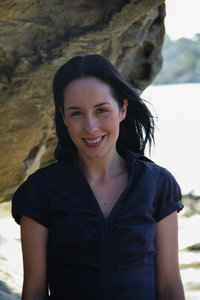 Australia Counselling member Jessica Ryan-Zeman speaks about her specialisation in Borderline Personality Disorder (PBD).
Australia Counselling member Jessica Ryan-Zeman speaks about her specialisation in Borderline Personality Disorder (PBD).
Traditionally considered a very difficult character style to work with by many therapists, Jessica sees BPD as essentially a relational issue that can be worked with effectively through a secure therapeutic relationship and long-term work.
She is passionate about not pathologizing people who have been diagnosed with Borderline Personality Disorder and frequently sees people in her Sydney practice who are working hard to overcome the adverse affects of this diagnosis.
Here’s what she had to say when we spoke to her recently about her work in this area.
Tell us a bit about your practice- where it is, who you work with and the services you offer
I run a small private practice in Sydney’s CBD. I mainly treat addictions and I also work with individuals suffering from Borderline Personality Disorder.
How did you become interested in counselling and working with Borderline Personality Disorder?
I decided I wanted to be a counsellor when I studied Psychology at university. I have always been fascinated by human behaviour, by our stories and what we struggle with. The idea that maybe I could help people in some capacity with what they might be struggling with really appealed to me. I came across Borderline Personality Disorder in my training and really disliked how it was portrayed by the mainstream medical model and I wanted to challenge common misconceptions about BPD that are out there.
What is BPD and how would you know if you or a loved one had it?
Borderline Personality Disorder is basically a relational disorder. People with BPD struggle in their relational world. They have difficulty managing interpersonal relationships as they are often very sensitive to criticism and rejection. They find it very hard to regulate their emotions so often have intense outburst of anger and can act very impulsively.
People often identify with the relational difficulties of BPD and come and see me because they feel they cannot manage their emotions and relationships the way others seem to be able to or that they don’t react to things in the way that other people seem to.
How does Borderline Personality Disorder affect people and their relationships?
BPD can have a very adverse effect on people and their relationships. People with BPD will often self-medicate so there can be substance abuse and eating disorders. They will often be very depressed and anxious and there are often issues of self-harm, suicide attempts and general acting out that causes chaos in their lives and those around them.
How do you believe people overcome BPD, or is it something people learn to learn to manage?
I think Borderline Personality Disorder can be overcome. The core symptoms such as heightened emotions, sensitivity and relationship issues might always be there but they can get to a point where they no longer interfere with a person’s life.
The most important thing someone can do is find help and to stick with it. It is an entirely treatable condition through psychotherapy and science is now finally recognising that too.
Tell us about your approach and why you believe the way you work is effective in helping people with Borderline Personality?
There isn’t a miracle cure or a quick fix BPD requires long-term therapy. I believe BPD is an attachment disorder so therapy is about healing childhood wounds and being able to live in the here-and-now.
It’s about learning to know yourself, what your triggers are and how to manage them better so you are coming from a less reactive space. I think that my approach helps people because I believe in their capacity to change and offer a non-pathologising approach.
Tell us what a client can expect to experience in an initial counselling session with you
I think the first session is about starting to establish a good working relationship together. In an initial session I will try to get a bit of an idea about why they have come to see me, what they see the problem is and what they are looking for out of therapy. I will explain how therapy works and help them to establish what they want to start working on first.
On a personal note, tell us something that you’re passionate about or love to do in your spare time
Well I have two little boys so I don’t know anything about spare time! But I love being outside and playing with them. My entire family are all massive foodies so we love to eat out a lot too. I’m also a huge TV addict, just finished watching the last series of Breaking Bad and am now going into withdrawal I loved it!
If you would like to work with Jessica, you can book an appointment through her Australia Counselling profile or her website Sydney Recovery Counselling.





Leave a Reply